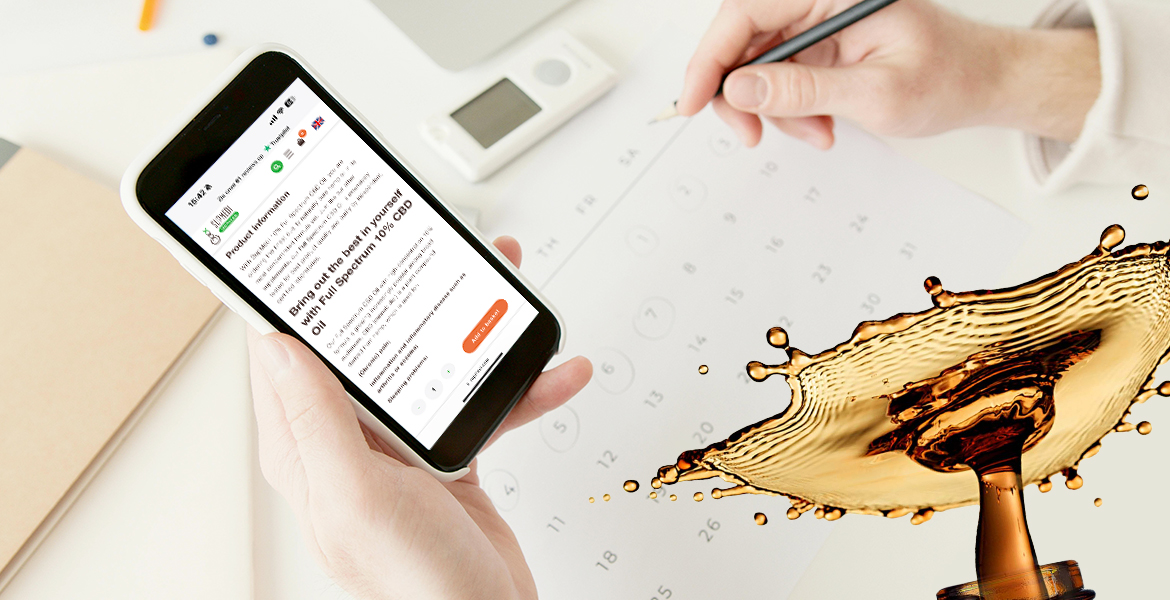
How Can CBD Contribute to Better Blood Sugar Control in Diabetes?
5 September 2024Does CBD have an impact on blood sugar levels in diabetes? Diabetes is a common condition, affecting 422 million people worldwide. So, what role can CBD play? It’s possible that this natural remedy can be used to alleviate symptoms and even help prevent the condition.
How Does CBD Affect Blood Sugar Levels?
Type 1 and type 2 diabetes differ from each other—they have different origins and treatments. However, both involve an excess of glucose in the blood. To regulate blood sugar levels, the hormone insulin is needed, which is normally produced by the pancreas. Insulin helps cells absorb glucose from food, which can later be used for energy.
In type 1 diabetes, which affects about 5% of people with diabetes, the body produces little to no insulin, causing glucose to remain in the bloodstream, which can damage the arteries and leave cells lacking fuel. However, most people have type 2 diabetes, which develops over time. In this type, the cells no longer respond well to insulin (known as insulin resistance), resulting in high blood glucose levels.
But what can CBD do for high blood sugar? CBD is a cannabinoid derived from the hemp plant. Unlike THC, the most well-known compound from this plant, CBD does not have psychoactive properties. CBD works with the body, particularly with the endocannabinoid system (ECS). The ECS maintains balance and influences many processes.
The ECS helps regulate food intake and energy levels. Research shows that in people with obesity or type 2 diabetes, the ECS is often overactive. This is one reason why CBD may help restore balance to blood sugar levels. Here’s what is known about CBD and diabetes.
CBD and Blood Sugar
When combined with THC, CBD may help people with type 2 diabetes better control their blood sugar levels, according to a 2016 study. Even when used alone, CBD has benefits, such as reducing the hormone resistin, which contributes to insulin resistance.
Additionally, CBD may increase the levels of a peptide that stimulates the body to produce more insulin. Scientists believe that CBD could help address some hormonal imbalances associated with developing type 2 diabetes.

CBD’s Effect on Inflammation
There appears to be a link between arthritis and the development of diabetes. This connection may be due to the inflammation associated with both conditions, though genetics, obesity, and lack of physical activity can also play roles. CBD could help reduce inflammation.
CBD and Blood Sugar: Insulin Resistance
Type 2 diabetes is strongly linked to being overweight. A 2020 study found that CBD may positively affect factors that contribute to insulin resistance, metabolic syndrome, and type 2 diabetes. It has the potential to reduce inflammation and impact glucose metabolism, which can help mitigate the symptoms of insulin resistance and type 2 diabetes.
Nerve Pain in Diabetes
High blood sugar levels can restrict oxygen and nutrients to small blood vessels, which are crucial for supplying blood to the nerves. Prolonged high blood sugar can damage these blood vessels and, eventually, the nerves, leading to a condition known as neuropathy, which is often associated with diabetes.
Neuropathy can cause pain, tingling, and numbness, especially in the hands and feet. By helping to regulate blood sugar levels, CBD may help prevent nerve pain associated with diabetes. Research on rats suggests that CBD can also promote nerve growth, potentially alleviating nerve pain.

Anxiety and Stress
Diabetes often comes with anxiety and stress, as managing the condition can be challenging. Anxiety and stress can negatively impact the symptoms of the disease. When stressed, the body produces cortisol and adrenaline, which can cause a rise in blood sugar levels.
Through its calming effects, CBD can indirectly influence blood sugar levels. Using CBD can help alleviate anxiety and stress, which in turn can have a positive effect on diabetes symptoms.
Using CBD for Blood Sugar Regulation
Living with diabetes can be challenging. Using a natural remedy like CBD may offer benefits, but not everything about its advantages in diabetes is clear. Research is still relatively limited, and much of it has been conducted on animals.
If you’re considering using CBD to reduce symptoms, first consult with your doctor to see if it’s a suitable option. You’ll need your doctor’s help to combine CBD with any other medication. It’s not advisable to proceed on your own. If you’re looking for a reliable CBD product, check out our CBD oils or tablets.








